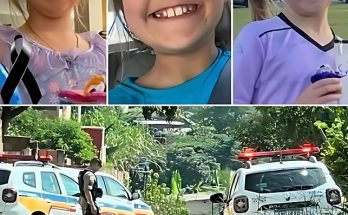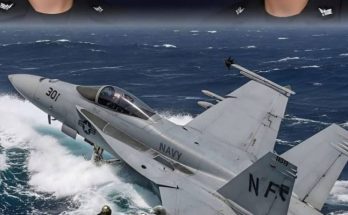The harsh glow of fluorescent lights cast a cold, gray pall over Terminal D at Otopeni Airport. Officer Andrei scanned the bustling crowd with the sharp, practiced eyes of a man who’d seen it all. Beside him padded Luna — a majestic German Shepherd with a sleek black coat and eyes that missed nothing. For three unwavering years, they had worked as one. Luna had never failed. Not once.
Andrei moved his gaze steadily from face to face, reading every twitch, every nervous glance, every shift in posture. He knew the patterns — the dance of deception and truth.
But that night… something felt off. Something changed.

Luna halted without warning. Her ears snapped forward, tail rigid, body tense like a coiled spring. Her eyes locked on a woman pushing a stroller — a bundle of pale blue blankets nestled inside. The German Shepherd’s nose twitched rapidly, inhaling something in the air that didn’t belong. Then came the sound: a deep, primal growl that rolled from her chest like distant thunder.
Officer Andrei noticed it instantly. Time seemed to fold in on itself — the noise of the terminal muffled into eerie silence, the crowd fading into shadows. All that remained was the dog, the woman, and the stroller.
The woman, gaunt and wide-eyed, clutched the handle of the stroller as if her life depended on it.
— “Get your dog away from my baby!” she shrieked, voice cracking with panic.
But Luna didn’t move back.
For the first time in her career, she refused to obey.
With lightning speed, she lunged forward, her powerful paws slamming against the frame of the stroller. The soft blue cover tore away in an instant.
And what lay beneath froze the air.
There was no child. No sign of a newborn.
Instead, nestled between the cushions, was a sealed thermal bag — marked with biohazard warnings and lined with Russian and Chinese labels. Metallic canisters glinted ominously inside, exuding a sharp, chemical odor that stung the senses.
The terminal erupted — not in noise, but in stunned, horrified silence.

Andrei sprang into action.
He seized the woman by the arm and pulled her away from the stroller, his movements swift and decisive. Luna remained rooted to the spot, eyes locked on the canisters as if willing them not to move. Another officer bolted across the terminal, shouting into his radio — summoning the anti-terrorist unit.
— “What is this?! Where’s the baby?!” Andrei barked, his voice echoing through the terminal like a gunshot.
The woman’s face crumpled. Her knees buckled, and tears spilled down her cheeks.
— “There… there was no baby,” she stammered. “I don’t know what’s inside… They told me to just get it past security.”
Within minutes, chaos gave way to order. A security perimeter was established. Tactical units flooded the area, and specialists in hazmat suits descended upon the stroller. The suspicious containers were extracted with surgical precision, each movement deliberate, each second tense with potential catastrophe.
What followed was more chilling than anyone could have anticipated.
An international investigation quickly unfolded. Intelligence agencies across multiple borders were alerted. The thermal bag, it turned out, contained experimental biological samples — engineered in illegal labs scattered across Asia. Their destination: a shadowy facility buried somewhere in Western Europe.
Experts reviewing the scene issued a stark warning: if even one of those canisters had been compromised, the result could have been catastrophic — a biological event capable of spreading uncontrollably through airports, cities, nations.
The woman, an unwitting pawn, had been lured with promises of easy money. All she had to do, they said, was push a stroller with a “sleeping child” through customs.
She had no idea she was carrying a weapon.
And thanks to Luna, the weapon never reached its target.

Luna’s story swept across the nation like wildfire.
By nightfall, images of the courageous German Shepherd and Officer Andrei Popescu were plastered across every screen — news broadcasts, social media feeds, and front-page headlines. Tributes poured in. People called Luna a hero, a savior. Her unshakable instincts, honed through years of discipline and duty, had thwarted a potential catastrophe.
In a later interview, Officer Popescu spoke with quiet pride:
— “That night, Luna wasn’t just a service dog. She was a guardian angel — not just for the airport, but perhaps for all of Europe.”
And it was true.
What began as a routine patrol ended in the prevention of a biological disaster. Thanks to Luna, thousands of lives were spared — and the world was reminded that sometimes, the greatest heroes walk on four legs.



